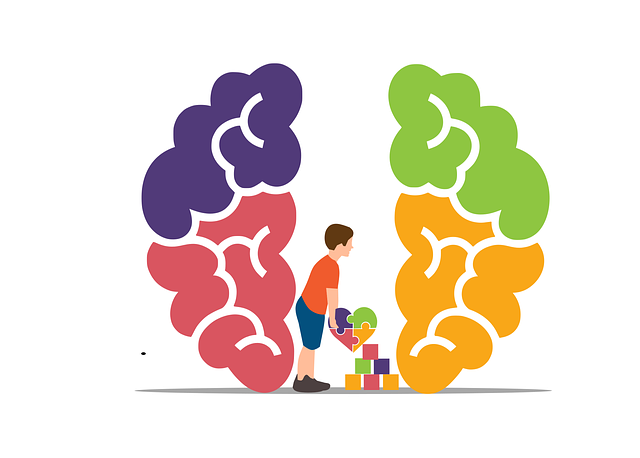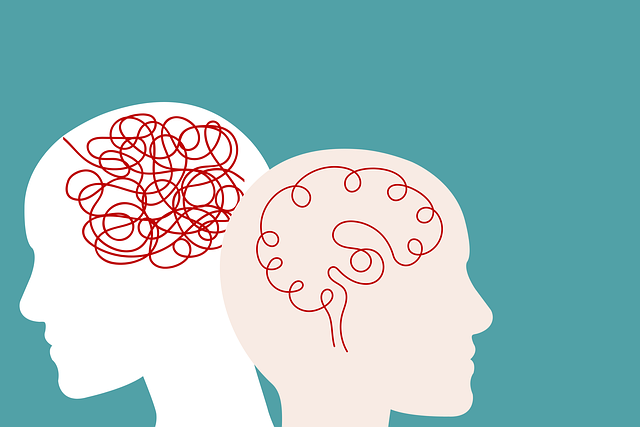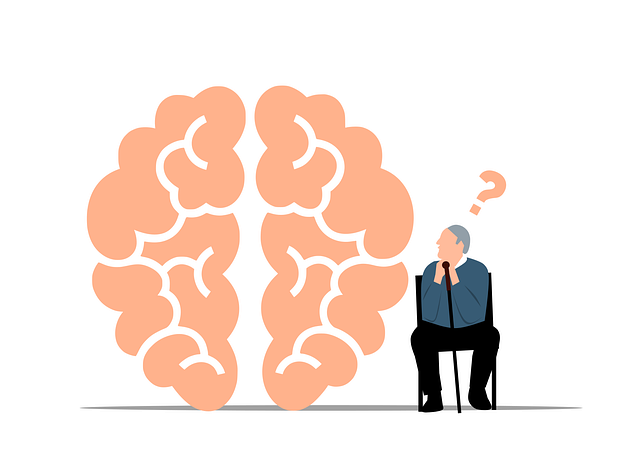Broomfield Grief Counseling Therapy (BGCT) offers a holistic approach to mood regulation by combining cognitive-behavioral techniques with emotional expression and self-care practices. Through identifying and challenging negative thoughts, processing past experiences, and adopting strategies like mindfulness, physical activity, and mood journaling, individuals gain tools to manage triggers and improve mental well-being. BGCT's CBT methods empower people to reframe loss-related thoughts, enhancing emotional stability and resilience against mental illness stigma. Mindfulness practices further stabilize emotions, reducing anxiety and depression symptoms. Building self-care routines fosters inner strength, adaptability, and long-term mental health management.
Mood regulation strategies are essential tools for managing emotional well-being. This comprehensive guide explores various approaches, from evidence-based practices like Broomfield Grief Counseling Therapy to identifying triggers and coping mechanisms. We delve into cognitive-behavioral techniques, mindfulness and meditation practices, and long-term resilience building. By understanding these strategies, individuals can achieve better emotional balance and enhance their overall mental health.
- Understanding Mood Regulation: The Role of Broomfield Grief Counseling Therapy
- Identifying Triggers and Coping Mechanisms
- Cognitive-Behavioral Techniques for Emotional Balance
- Mindfulness and Meditation Practices for Mood Stabilization
- Building Resilience: Long-term Strategies for Effective Mood Management
Understanding Mood Regulation: The Role of Broomfield Grief Counseling Therapy

Understanding Mood Regulation: The Role of Broomfield Grief Counseling Therapy
Broomfield Grief Counseling Therapy (BGCT) offers a unique perspective on mood regulation, addressing the intricate connection between emotional well-being and the grieving process. This therapeutic approach recognizes that managing mood effectively involves understanding and processing past experiences, particularly those related to loss and grief. By delving into these underlying emotions, BGCT facilitates a holistic healing process that goes beyond surface-level coping mechanisms. It aims to empower individuals to develop healthier ways of navigating their emotional landscape, thereby enhancing their overall mental wellness.
Incorporating elements of cognitive-behavioral techniques, BGCT helps clients identify and challenge negative thought patterns associated with grief and loss. Through guided exploration, individuals learn to replace these unhelpful thoughts with more adaptive ones, fostering better emotional regulation. Moreover, the therapy provides a safe space for expression, allowing participants to confront and release repressed emotions, which is crucial in stigma reduction efforts related to mental illness. This supportive environment encourages self-acceptance and fosters resilience, ultimately contributing to improved mood management and enhanced quality of life.
Identifying Triggers and Coping Mechanisms

Identifying triggers is a crucial step in managing one’s mood and overall mental well-being. In Broomfield Grief Counseling Therapy, professionals guide individuals to recognize patterns and events that evoke strong emotional responses. By understanding these triggers, people can begin to develop effective coping mechanisms, which are essential tools for navigating challenging situations. These mechanisms provide healthy alternatives to dealing with stress, anxiety, or sadness, preventing negative behaviors and promoting a sense of calm.
The process involves self-reflection and keeping a mood journal to track events and associated feelings. This practice helps individuals identify recurring triggers and patterns, allowing them to proactively develop strategies for coping. Whether it’s engaging in physical activity, practicing mindfulness, or connecting with supportive networks, these mechanisms empower people to take charge of their emotional responses, fostering better mental health management and overall resilience, especially when considering Stress Management Workshops Organization, Mental Health Policy Analysis and Advocacy, and Burnout Prevention Strategies for Healthcare Providers.
Cognitive-Behavioral Techniques for Emotional Balance

Cognitive-Behavioral Techniques (CBT) offer powerful tools for achieving emotional balance and effective mood regulation. This therapeutic approach focuses on identifying and challenging negative thought patterns that contribute to distressing emotions. By understanding how our thoughts, feelings, and behaviors are interconnected, individuals can begin to change their emotional responses. For instance, in the case of Broomfield Grief Counseling Therapy, CBT can help grieving individuals reframe their thoughts about loss, reducing intense sadness and anger.
Through specific strategies like cognitive restructuring and behavioral activation, CBT empowers people to develop inner strength by replacing maladaptive thinking with more balanced perspectives. This, coupled with trauma support services or crisis intervention guidance, enables individuals to navigate challenging emotions and create a more positive mindset. By learning these skills, one can enhance their overall well-being and resilience, fostering a sense of emotional control and stability.
Mindfulness and Meditation Practices for Mood Stabilization

Mindfulness and meditation practices have gained significant attention as effective tools for mood regulation. These ancient techniques, now backed by modern research, offer a gentle yet powerful approach to stabilizing emotions. By focusing on the present moment, individuals can learn to observe their thoughts and feelings without judgment, thereby reducing the impact of negative or stressful experiences. This practice is particularly beneficial for those seeking Broomfield Grief Counseling Therapy, as it helps in processing grief and managing intense emotions associated with loss.
Incorporating mindfulness into daily routines can significantly enhance mental well-being. Research suggests that regular meditation practices may even reduce symptoms of anxiety and depression. Mental health professionals often emphasize the importance of self-care strategies like these, especially when conducting risk assessments for their clients. By promoting mental health awareness and self-esteem improvement, mindfulness becomes a valuable asset in navigating life’s challenges, leading to better emotional regulation and overall resilience.
Building Resilience: Long-term Strategies for Effective Mood Management

Building resilience is a key aspect of long-term mood regulation and effective mental health management. It involves developing inner strength and coping mechanisms to navigate life’s challenges, much like Broomfield Grief Counseling Therapy provides support for those dealing with profound emotional loss. By integrating this therapeutic approach into your self-care routine development, individuals can foster adaptability and grow from adversity.
Resilience isn’t about avoiding difficulties; instead, it empowers people to bounce back stronger after hardships. This process includes adopting healthy habits such as consistent exercise, mindfulness practices, and maintaining a balanced diet—all of which contribute to depression prevention. By nurturing inner strength through self-care routines, individuals can better manage their moods and enhance overall well-being, ensuring they have the tools necessary for long-term mental health success.
In conclusion, managing moods effectively is a multifaceted approach that integrates various therapeutic techniques. From understanding the foundational role of Broomfield Grief Counseling Therapy in emotional regulation to adopting cognitive-behavioral strategies and cultivating mindfulness, each section explores vital tools for navigating mood fluctuations. By identifying triggers, implementing coping mechanisms, building resilience, and embracing long-term strategies, individuals can achieve a sense of emotional balance and overall well-being.














